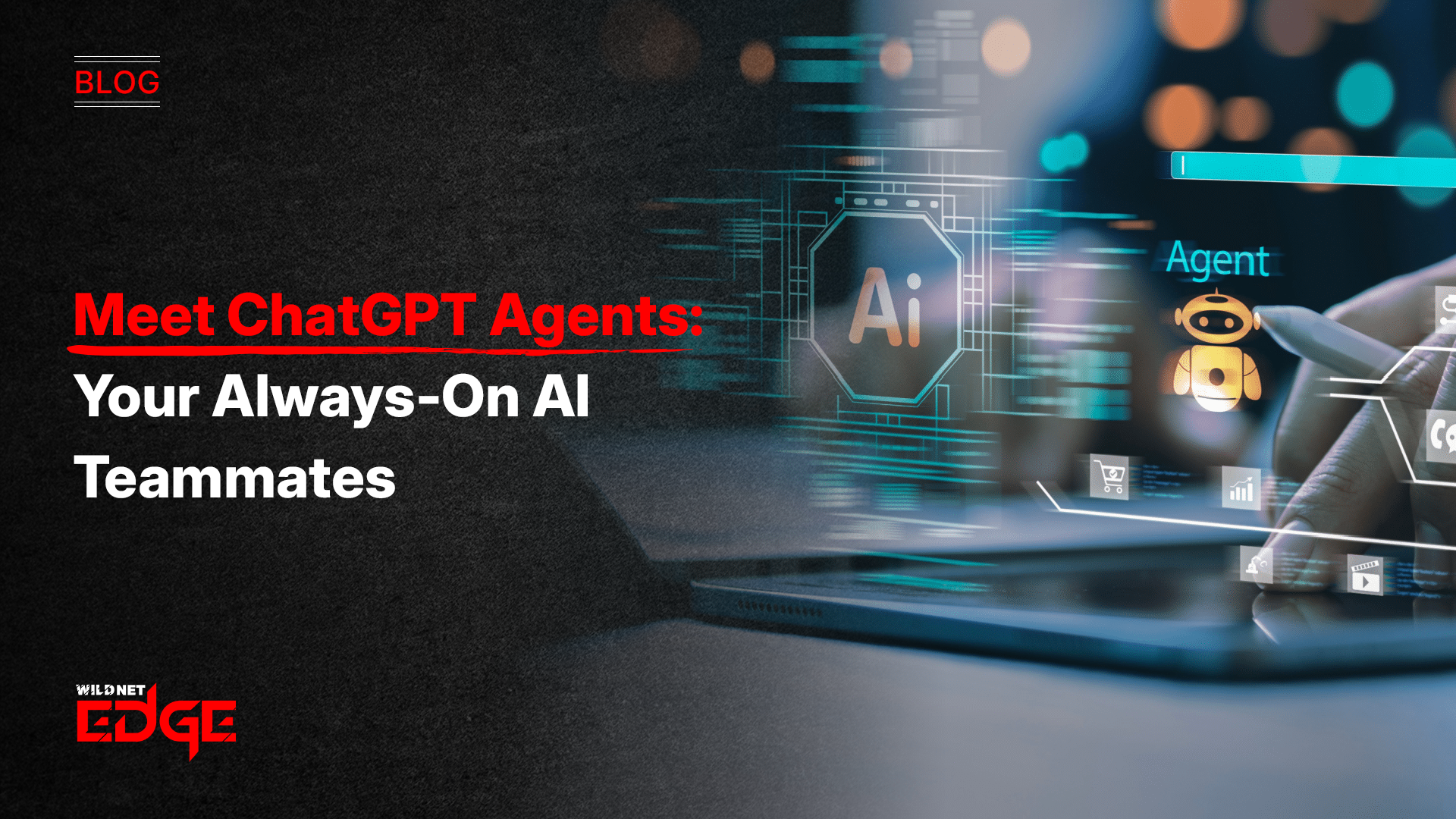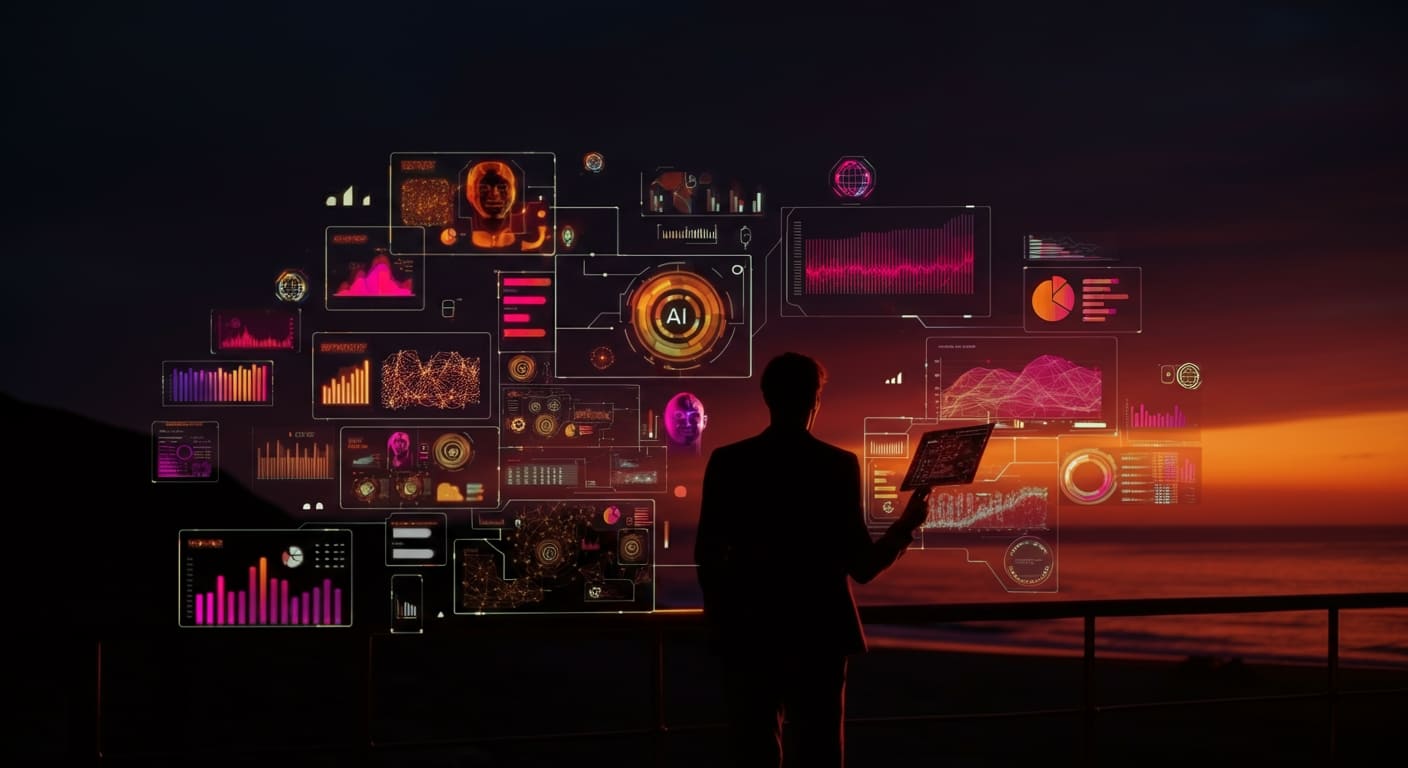Remember when ChatGPT was just a chatbot? You’d ask a question, it would answer. Helpful, yes, but passive.
That’s over now.
OpenAI’s new ChatGPT Agents aren’t just about conversations anymore; they’re about action. These aren’t just smart assistants; they’re goal-driven, task-executing teammates that can remember, reason, and do. From fetching data and sending emails to writing code or managing your to-dos, Agents work like digital interns (or experts) who are available 24/7.
In this post, we’ll explore what ChatGPT Agents are, how they work, and why they’re about to become your most productive coworker yet.
What Are ChatGPT Agents?
At their core, ChatGPT Agents are autonomous AI entities that can perform multi-step tasks without constant human prompts. Think of them as digital teammates you can assign a job to, and they’ll go off and do it.
Each agent is:
- Goal-driven: You tell it what you want, not how to do it.
- Memory-enabled: It remembers context and past instructions.
- Tool-using: It can browse the web, run code, call APIs, and more.
- Customizable: You define how it should behave, respond, and take action.
What separates them from a regular chatbot is their ability to think ahead, follow instructions over time, and complete tasks across sessions. It’s the difference between saying “remind me tomorrow” and actually having something that does it, and follows through.
This shift marks a major move from conversational AI to Agentic AI, where the assistant isn’t just reactive, it’s proactive.
What Can ChatGPT Agents Actually Do?
This is where ChatGPT Agents really shine; they’re not just answering questions, they’re getting stuff done.
Depending on how you configure them, autonomous AI agents can:
- Scrape websites and gather data for reports
- Automate workflows like sending weekly updates or task summaries
- Manage your calendar, set reminders, and send follow-ups
- Summarize long documents, research papers, or email threads
- Pull insights from spreadsheets or business dashboards
- Write and debug code, or generate scripts based on your inputs
- Generate content like blogs, product descriptions, or ad copy
You can even connect them to tools like APIs, databases, or SaaS platforms to extend their capabilities.
Example: Imagine building an agent that checks your competitor’s website every morning, summarizes new updates, and sends a Slack message to your product team. All automated. All hands-off.
They’re not just assistants; they’re self-directed doers.
Agents vs Custom GPTs: What’s the Difference?
At first glance, ChatGPT Agents might sound similar to Custom GPTs, after all, both are personalized and follow specific instructions. But in reality, they’re built for very different use cases.
Here’s the breakdown:
| Feature | Custom GPTs | ChatGPT Agents |
| Purpose | Extend the chat experience with custom personalities or skills | Execute multi-step tasks with autonomy and persistence |
| Memory | Optional, limited | Persistent, agent-specific memory |
| Behavior | Responds to input | Can initiate actions on its own |
| Tool usage | Limited to what GPT has access to | Uses tools, APIs, file systems, and browser to act |
| Task Handling | Great for Q&A and interaction | Great for complex workflows, automation, and decision-making |
Custom GPTs are like helpful consultants, you give them context, they respond thoughtfully.
Agents, on the other hand, are more like autonomous project managers. They can decide, act, and continue working even after the conversation ends. They remember your goals, use tools, and follow up later.
In OpenAI’s own words:
“Agents help you complete real tasks, like searching for flights, uploading files, or managing workflows, by reasoning over time, using tools, and handling subtasks.”
This shift isn’t about just adding new features. It’s about building AI teammates that work with you over time, across tasks, and toward outcomes.
Why This Is a Big Deal for Your Business
The introduction of ChatGPT Agents isn’t just a cool product update, it’s a fundamental shift in how businesses can get work done.
Why? Because Agents don’t just answer; they act. And that has massive implications for teams looking to streamline operations, reduce repetitive tasks, and scale smarter.
Here’s how this changes the game:
- No-code automation: You can build and deploy AI-powered workflows without writing a line of code.
- Scalable operations: Agents can handle tasks you’d otherwise need to delegate to multiple team members, minus the overhead.
- Faster execution: Need a daily sales report sent to your inbox at 9 AM? An agent can do that—every day, without fail.
- 24/7 productivity: Agents don’t sleep, don’t forget, and never miss a deadline.
- Context-aware support: With memory and tool use, they stay aligned with your goals and work habits.
Whether you’re a solopreneur managing multiple roles or a fast-growing team needing efficient systems, Agents give you a competitive edge without needing more hires or expensive tools.
This is AI moving from helpful to hands-on, from reactive to reliable.
Getting Started with ChatGPT Agents
SOURCE: Developers Digest
If you’re a ChatGPT Pro or Team user, you already have access to build and run Agents directly inside the ChatGPT interface. And the best part? You don’t need to be a developer to get started.
Here’s how to create your own agent in a few simple steps:
- Open ChatGPT and click on the “Explore GPTs” tab.
- Hit “Create” and choose the option to build an Agent.
- Set up the agent’s goal and behavior using natural language.
- Add the right tools, like the browser, code interpreter, file management, or custom APIs.
- Enable memory, so your agent remembers what it’s working on.
- Test it, refine it, and launch.
Want something even simpler? Browse the Agent examples published by OpenAI and the community. You’ll find agents for task management, reporting, travel planning, research, scheduling, and more.
You don’t need to know how to code. You just need to know what job you want done, and the agent will handle the rest.
This is where AI goes from being a helpful chat window… to being a real teammate.
What’s Next: The Agentic Future of Work
ChatGPT Agents are just the beginning of a much larger shift toward Agentic AI, AI that doesn’t just assist you in real-time, but actively works with and for you.
So what’s coming next?
- Multi-agent collaboration: Agents that can work together, hand off tasks, and complete complex goals as a team.
- Deeper tool integration: Agents that plug directly into your business apps—like Notion, Slack, HubSpot, or custom APIs, without the need for middleware.
- Long-term goal management: Instead of starting from scratch every time, your agent can remember business objectives and chip away at them over weeks or months.
- Dynamic decision-making: Agents that adapt, optimize, and improve how they solve problems based on outcomes.
We’re entering a future where AI isn’t something you “use”, it’s something you collaborate with.
And businesses that lean into this early will have an undeniable advantage: faster execution, lower overhead, and smarter systems that learn and improve over time.
You Don’t Need More Hours; You Need Better Teammates
In every business, there’s work that moves the needle, and work that just clogs the calendar.
ChatGPT Agents give you a way to delegate the second so you can double down on the first. They don’t just respond; they take initiative, execute processes, and evolve with your needs.
And the best part? You don’t need to build a dev team or learn prompt engineering. You just need to define the goal, and your AI teammate figures out the rest.
So while others are still asking ChatGPT to write a few emails, you’ll be:
- Automating your workflows
- Scaling operations
- And building a system that works even when you’re not
This isn’t the future of work. This is work, rewired.
Looking to integrate AI Agents into your business?
WildnetEdge is an AI-first partner that builds custom agentic solutions that scale. Contact us today.

Nitin Agarwal is a veteran in custom software development. He is fascinated by how software can turn ideas into real-world solutions. With extensive experience designing scalable and efficient systems, he focuses on creating software that delivers tangible results. Nitin enjoys exploring emerging technologies, taking on challenging projects, and mentoring teams to bring ideas to life. He believes that good software is not just about code; it’s about understanding problems and creating value for users. For him, great software combines thoughtful design, clever engineering, and a clear understanding of the problems it’s meant to solve.
 sales@wildnetedge.com
sales@wildnetedge.com +1 (212) 901 8616
+1 (212) 901 8616 +1 (437) 225-7733
+1 (437) 225-7733















 ChatGPT Development & Enablement
ChatGPT Development & Enablement Hire AI & ChatGPT Experts
Hire AI & ChatGPT Experts ChatGPT Apps by Industry
ChatGPT Apps by Industry ChatGPT Blog
ChatGPT Blog ChatGPT Case study
ChatGPT Case study AI Development Services
AI Development Services Industry AI Solutions
Industry AI Solutions AI Consulting & Research
AI Consulting & Research Automation & Intelligence
Automation & Intelligence















